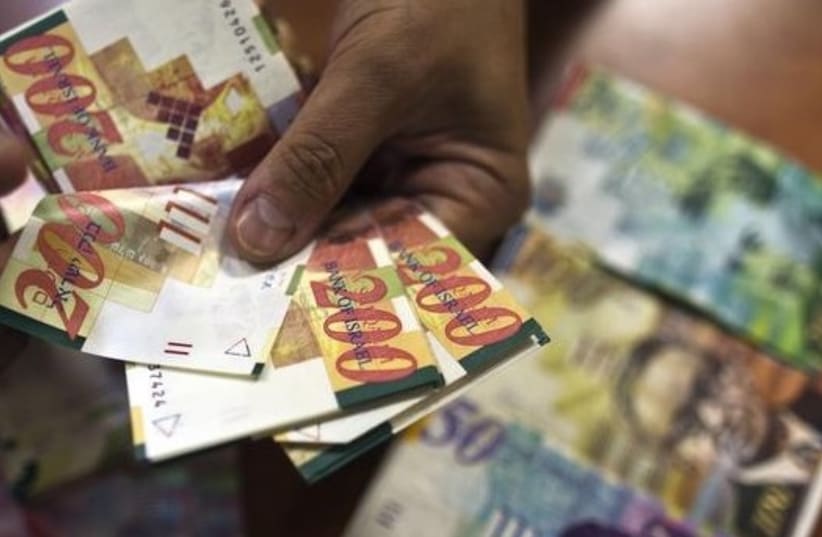The battle over the budget officially starts on Sunday, when the Finance Ministry presents a draft of the budget and Economic Arrangements Law to the cabinet.
Cabinet members will have to approve the budget by Thursday before the Knesset goes on summer recess. The Knesset Finance Committee will deliberate on the budget during the break, and when the Knesset resumes in October, it will have to approve the budget in three readings by November 4. If the budget is not approved by that date, the government will be automatically dissolved, and a snap election will be called.
That short timetable means there will be intense pressure to push things through quickly. It helps that the head of the Finance Committee, Alex Kushnir, is part of Finance Minister Avigdor Liberman’s Yisrael Beytenu party. But a lot of compromise by members of the coalition will be needed to avoid conflicts that could derail the plan.
Israel has not had a budget for more than three years, and the Economic Arrangements Law that has been put forward is possibly the most ambitious and complex document of its type ever. With every state budget, a new Economic Arrangements Law must be passed to incorporate government bills and legislative amendments that are needed in order for the government to fulfill its economic policy.
Several ministers have already begun expressing opposition.
Health Minister Nitzan Horowitz said on Tuesday that he will not support the budget if the Health Ministry doesn’t receive additional funding; Transportation Minister Merav Michaeli is in disagreement with Liberman about a proposed congestion tax on all cars entering Tel Aviv; and Environmental Protection Minister Tamar Zandberg has said that she will not approve a business licensing reform that would take certain powers away from her ministry.
However, most coalition members are dedicated to ensuring that the budget passes.
On Tuesday, Liberman and Defense Minister Benny Gantz agreed that Israel’s defense establishment will receive NIS 58 billion in the upcoming 2022 budget, an increase of NIS 7b. from the previous budget.
“The prime minister, finance minister and defense minister welcome the agreement, and call on all ministers and ministries to reach an understanding as soon as possible in order to approve the state budget in an orderly manner in the government and the Knesset,” read a statement issued following the agreement.
Agricultural reforms announced last week by Liberman and Agriculture and Rural Development Minister Oded Forer are being contested on the streets, but are unlikely to be challenged in the political echelons.
The reforms, which would lower the prices of fruits, vegetables and eggs and promote imports to boost competition, are being protested by farmers who fear the measures will destroy their livelihoods. On Thursday morning, thousands of farmers and agricultural workers blocked roads and scattered agricultural produce and eggs in protest.
Among other controversial topics that remain in the upcoming budget is a wide-reaching plan to reduce excessive regulation and bureaucracy in government offices, which Liberman says would save the economy between NIS 7b and NIS 8b. a year; raising the women’s retirement age from 62 to 65; a housing plan to convert tens of millions of square-meters of unused office space into residences to create new housing options; a plan to tax disposable plasticware and utensils; a tax on high-sugar beverages; massive transportation infrastructure projects; raising public transportation charges and removing discounts for transfer; and plans to boost Israel’s medical cannabis industry.
A set of reforms to the kashrut market that would effectively end the Chief Rabbinate’s long-held monopoly over the kashrut-supervision industry was already left out of the Economic Arrangements Law due to political considerations.
On Thursday, a conflict arose between Liberman and Economy Minister Orna Barbivay over an obligation for reciprocal purchases for the contractors of the massive NIS 150b. Tel Aviv Metro project. Normally, a foreign supplier of a contract worth over $5 million is required to make reciprocal purchases from local suppliers, but the Finance Ministry wants to exempt that project. Barbivay insisted that such an exemption would cost Israel tens of thousands of jobs and billions of shekels of business.
It remains to be seen what will happen with this and other political hot potatoes.
